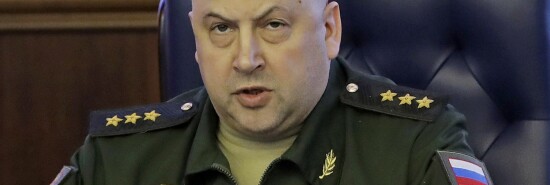
Whereabouts of top Russian general remain unknown since Prigozhin mutiny
Mike Brest
Video Embed
The deputy commander of Russian troops in Ukraine has not been seen since the Wagner Group’s attempted rebellion against top military leaders last month.
Gen. Sergei Surovikin, who previously served as Russia’s top commander in Ukraine, had advance warning of Yevgeny Prigozhin’s, the paramilitary group’s founder, planned coup, the New York Times reported last month citing U.S. officials. Both his whereabouts and his possible involvement in the attempted mutiny remain unknown, though the Moscow Times reported on June 28 that Surovikin had been arrested.
PENCE DISMISSES GOP DEBATE DOUBTS: ‘I’VE DEBATED DONALD TRUMP 1,000 TIMES’
The United Kingdom’s Defense Ministry noted in their daily update on Wednesday that Surovikin hasn’t been seen publicly since the mutiny on June 23 and June 24, though they noted that reports of his arrest “cannot be confirmed.” Russian Deputy Defense Minister Col. Gen. Yunus-bek Yevkurov also missed a televised appearance on Monday, and he was filmed talking to Prigozhin during the group’s brief seizure of Rostov-on-Don.
Prigozhin had been intending to apprehend Russian Defense Minister Sergei Shoigu and Gen. Valery Gerasimov, both of whom he has publicly rebuked for months. The mercenary leader was forced to accelerate his timeline after Russian intelligence officials uncovered the plot. The Wagner forces’ quick success in the first hours of the coup, despite authorities’ prior knowledge of the plan, raised questions about the capability of Russia’s forces.
CLICK HERE TO READ MORE FROM THE WASHINGTON EXAMINER
This plan was the culmination of a monthslong battle against them, though it had remained verbal until now. He accused Shoigu and Gerasimov of treason and of withholding military resources from his forces even as they were battling on the front lines of Russia’s war in Ukraine.
U.S. officials have argued the situation demonstrated “cracks” forming within Putin’s circles, though others also referred to it as an “internal” issue for Russia and declined to elaborate.
